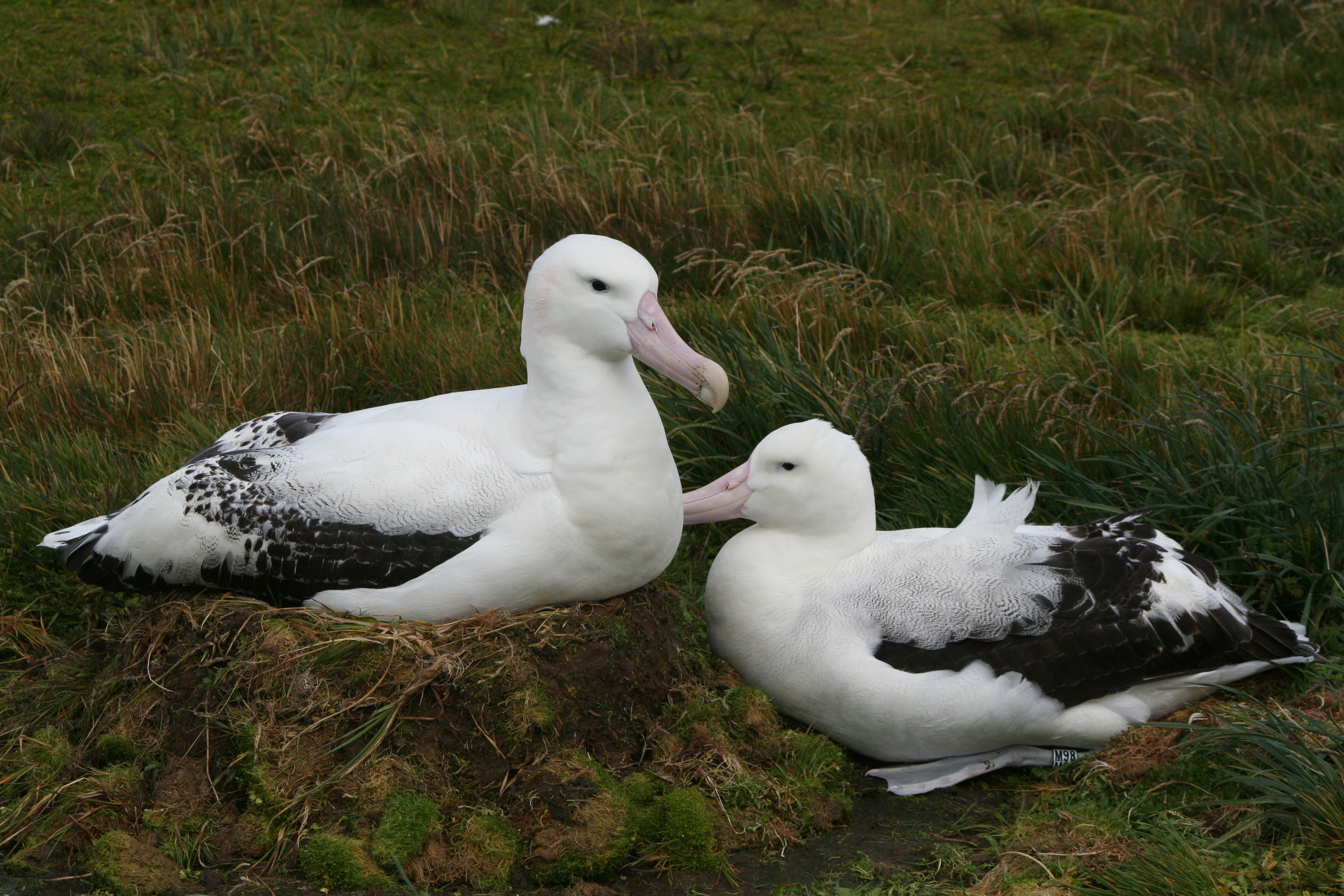
Fionnuala R. McCully (School of Environmental Sciences, University of Liverpool, Liverpool, UK) and colleagues have published open access in Ecology and Evolution on the influence of Wandering Albatross pair members’ traits in foraging behaviour.
The abstract follows:
“Long-lived monogamous species gain long-term fitness benefits by equalizing effort during biparental care. For example, many seabird species coordinate care by matching foraging trip durations within pairs. Age affects coordination in some seabird species; however, the impact of other intrinsic traits, including personality, on potential intraspecific variation in coordination strength is less well understood. The impacts of pair members' intrinsic traits on trip duration and coordination strength were investigated using data from saltwater immersion loggers deployed on 71 pairs of wandering albatrosses Diomedea exulans. These were modeled against pair members' age, boldness, and their partner's previous trip duration. At the population level, the birds exhibited some coordination of parental care that was of equal strength during incubation and chick-brooding. However, there was low variation in coordination between pairs and coordination strength was unaffected by the birds' boldness or age in either breeding stage. Surprisingly, during incubation, foraging trip duration was mainly driven by partner traits, as birds which were paired to older and bolder partners took shorter trips. During chick-brooding, shorter foraging trips were associated with greater boldness in focal birds and their partners, but age had no effect. These results suggest that an individual's assessment of their partner's capacity or willingness to provide care may be a major driver of trip duration, thereby highlighting the importance of accounting for pair behavior when studying parental care strategies.”
Reference:
McCully, F.R., Weimerskirch, H., Cornell, S. J., Hatchwell, B. J., Cairo, M., & Patrick, S.C. 2022 . Partner intrinsic characteristics influence foraging trip duration, but not coordination of care in wandering albatrosses Diomedea exulans. Ecology and Evolution 12, e9621. https://doi.org/10.1002/ece3.9621
11 January 2023

 English
English  Français
Français  Español
Español